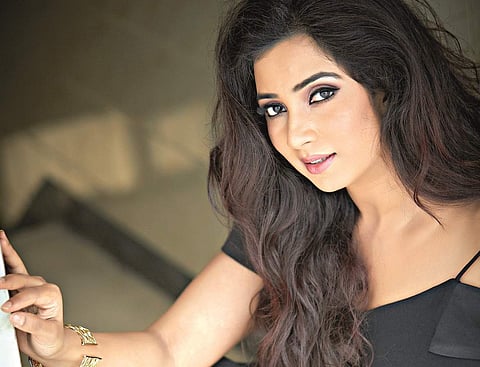
- LIFESTYLE
- FASHION
- FOOD
- ENTERTAINMENT
- EVENTS
- CULTURE
- VIDEOS
- WEB STORIES
- GALLERIES
- GADGETS
- CAR & BIKE
- SOCIETY
- TRAVEL
- NORTH EAST
- INDULGE CONNECT

Shreya Ghoshal is a name that is recognised not just in Bollywood but also in regional cinema. Although her recent songs from films such as Dil Bechara and Tanhaji-The Unsung Warrior are quite popular, Shreya’s latest single Angana Morey which was released earlier this February is topping the charts.
A composition that she’s worked on with her brother Soumyadeep Ghoshal, it is a song that combines Indian classical music with electronic beats and sounds. Talking about this experiment, the singer says,“I would call it an electronic pop bandish. It blends classical music with electronic arrangements. It’s an idea that my brother and I worked on during the lockdown. Although I was working on other projects, Soumyadeep kept asking me what I was doing next. He really pushed me, and we worked on creating this song that has a global appeal.”
Shot remotely in their homes, the music video also has many special effects that give it a dream-like feel. The narrative is about a girl longing for her lover. “This could be anyone’s story, that of a wife or a girl who is in love and how she misses her beloved. I have tried to pen my own words for this song, and the two dancers in the video are from artiste Shakti Mohan’s dance troupe. The choreography is also done by her,” she explains.
Though Shreya continues to sing for mainstream Bollywood films and is often heard down South in Kannada, Tamil and Telugu films, the amount of work she is doing is quite limited. For someone who has given memorable hits such as Yeh Ishq Hai (Jab We Met), Mere Dolna (Bhool Bhulaiyya) Sun Raha Hai Na Tu (Aashiqui 2) and Deewani Mastani (Bajirao Mastani), Shreya has been quite selective about the songs she has chosen in recent years. One of the reasons is the limited time given to female singers in duets. “Of late, this has been the trend, and I consciously say no to such songs. I detest and protest this new norm where female voices are being under utilised. But I am grateful to those composers who have given me some memorable solos. However, the trend needs to change and we need more women-centric films and songs,” she signs off.